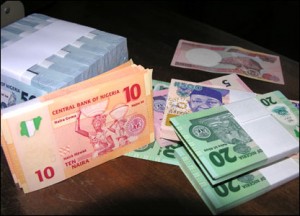One of the unsolved mysteries in the Nigerian economy is the fact that in spite (or because) of a succession of reforms to the banking sub-sector we have yet to see meaningful increase in access by economic entities generally to formal finance. Arguably, from 2004/2005, there was that spike in private credit growth. And for some time (until prices on the stock exchange collapsed under the weight of the asset price bubble that had supported the credit inflation), this was argued as one of the benefices of the Central Bank of Nigeria’s (CBN) reform, especially the decision to increase banks’ minimum paid-up capital from N2bn to N25bn. Such was the extent of the euphoria that the CBN had us all hooked on the (outside) possibility that by 2020, our economy would be in the global top-20.
And then came August 2009 to remind us that despite the best efforts of mice and men, nothing about the industry has changed. Why?
If a recent study by staff at the International Monetary Fund (IMF) is to be believed, although financial deepening (interest rate and lending liberalisation) could make it easier for more entrepreneurs to obtain capital and improve its allocations, thus boosting the development process, it does not succour the poor and the vulnerable. Rather, it holds out the possibility, as has happened in this country, that only the rich and politically connected would gain from reforms to the financial sector.
Before, therefore we begin to exult in the gains to be had from the CBN’s current reform effort, it helps to recall the conclusion of the authors of the article “Financial Deepening, Property Rights, and Poverty: Evidence from sub-Saharan Africa” [pdf]: the poor and vulnerable are best served by “institutional reforms, in particular, stronger property rights, and wider access to creditor information”.
